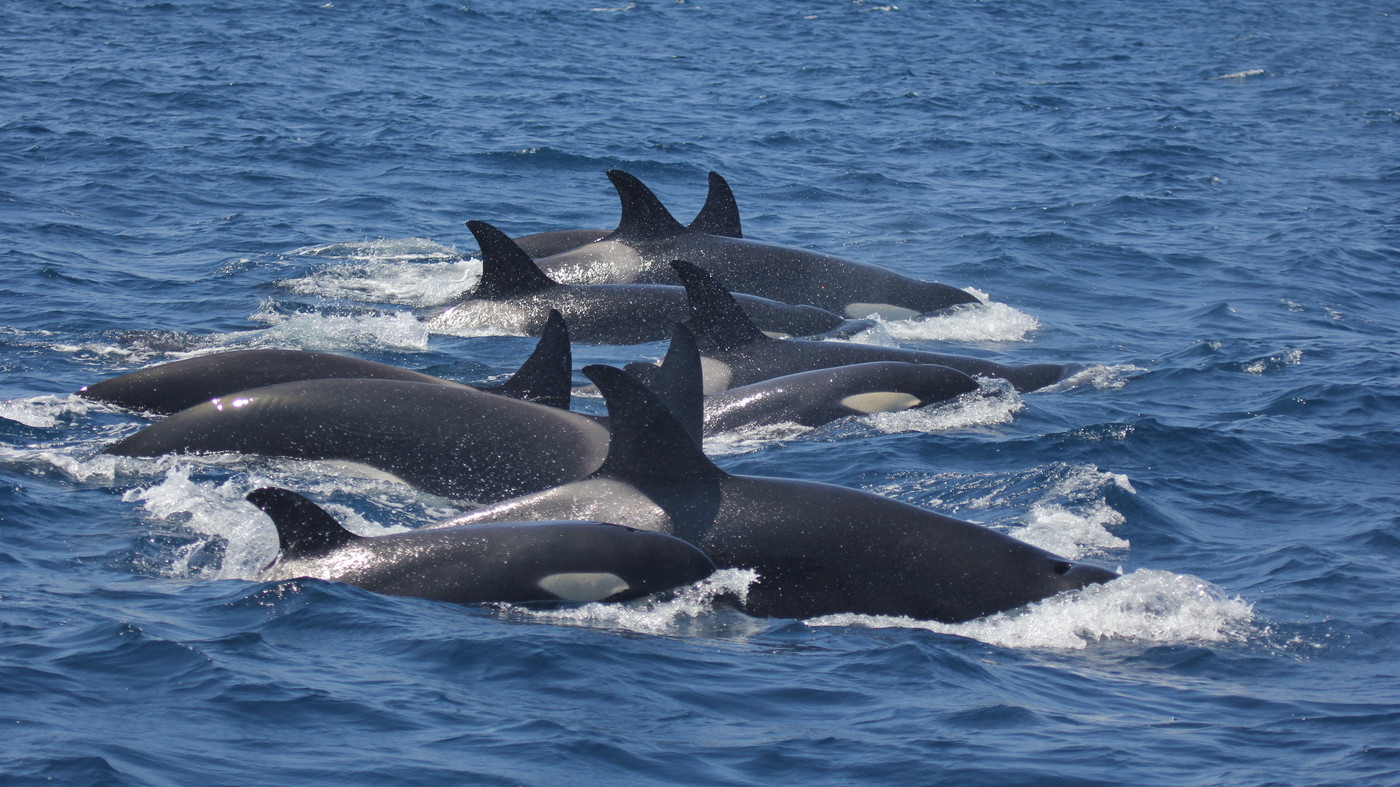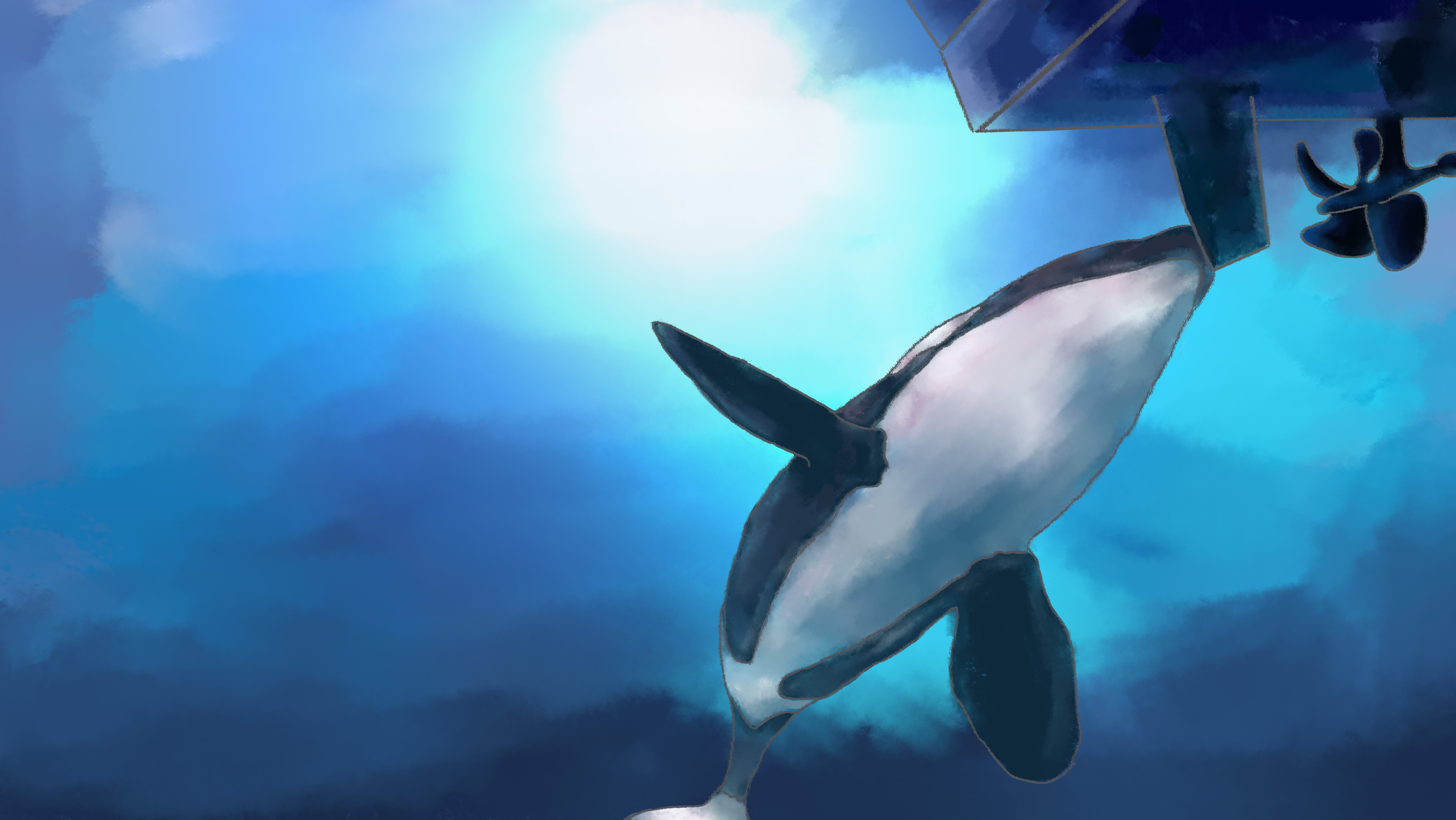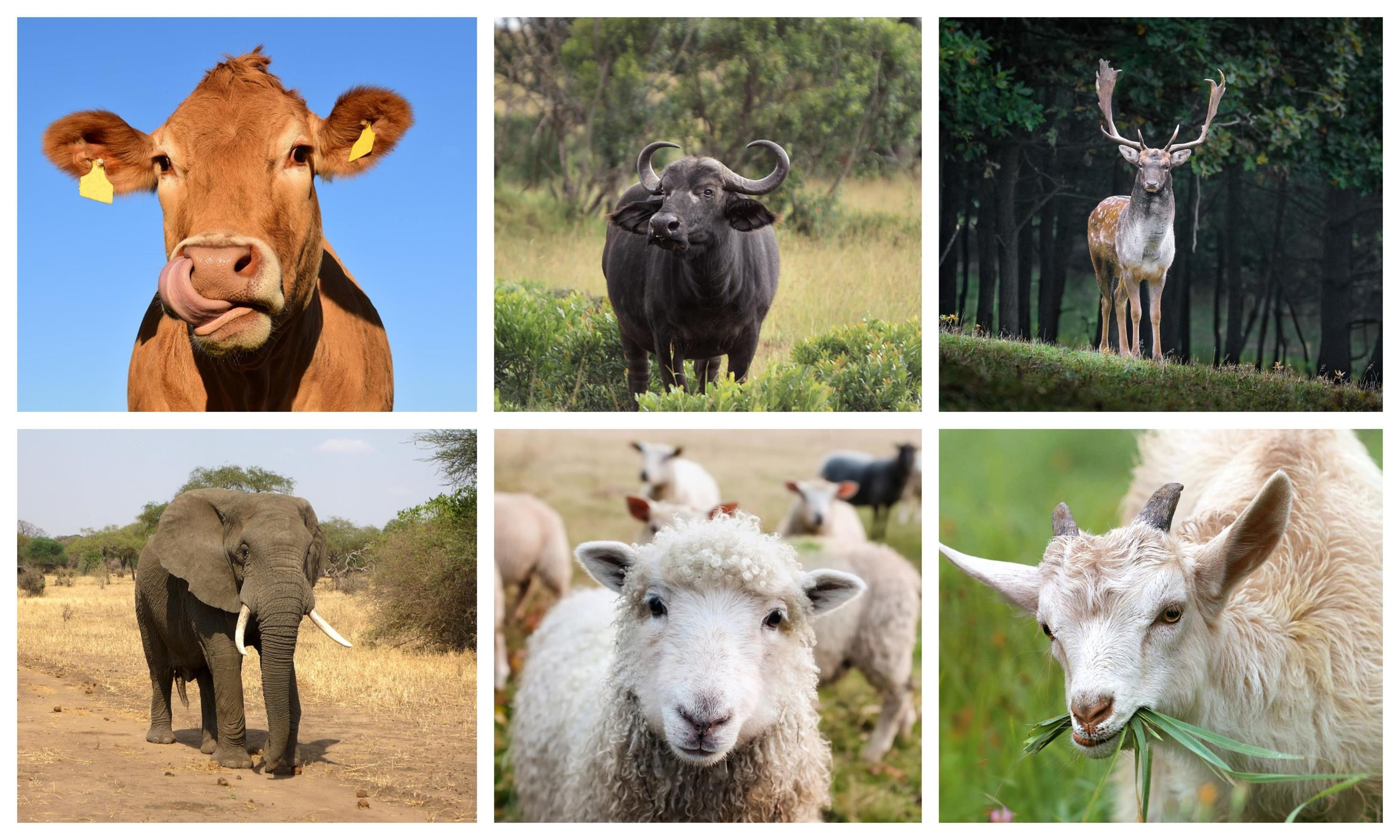Experts have a new theory about why orcas are targeting sailboats in the Iberian Peninsula — they're using them to practice hunting their favorite food.
Scientists have a new theory to explain why orcas are ramming yachts in the Iberian Peninsula — the boats are practice targets for learning to hunt their favorite food.
When young Iberian orcas (Orcinus orca) started hitting and sinking boats in 2020, experts wondered whether it was revenge, accidental, or just a fun thing to do. But the new theory suggests the juvenile orcas might be using the boats' rudders as targets to practice hunting Atlantic bluefin tuna (Thunnus thynnus).
Since 2020, the sailing community has been, understandably, highly interested in the predators' whereabouts. "We saw that as a great opportunity for science," study lead author Bruno Díaz López, director of the Bottlenose Dolphin Research Institute (BDRI), told Live Science. The team realized they could use citizen science to gather accurate data about the orca population's distribution. "The sailors aren't going to be lying to each other because it's quite a serious problem," he said. Nearly half (47%) of the study's 597 records of killer whale occurrences related to vessel interactions.
Using this data, the team created computer models of the orcas' movements to fill knowledge gaps around their seasonal movements. Their models showed that the orcas and tuna are driven by the same environmental factors, meaning that knowing where the tuna are located gives you a good idea where the orcas will be. They discovered seasonal shifts in the orcas' preferred habitats, which align with the tuna's migration.
The findings were published June 18 in the journal Ocean and Coastal Management.
Orcas are highly specialized predators, and different communities prefer different prey, depending on the most abundant food available. Iberian orcas "really depend on tuna," Díaz López said.
Atlantic bluefin tuna are no longer endangered thanks to conservation measures to protect them from overfishing. Their recovery makes it easier for the Iberian orcas to find food, giving them more leisure time. "If you eat well, you have more time to play," Díaz López said.
And this play might give them the opportunity to practice useful skills. Orcas have to work together to catch tuna, as the fish can weigh hundreds of pounds, swim in large schools and are among the fastest fish in the sea.
To isolate an individual tuna and get it away from the protection of the group, the orcas ram, Díaz López said. "Maybe one orca hits, and then the other one hits again," he said. Once the orcas have separated an individual tuna, they tire it out and drive it towards shallower waters where it's easier to catch.
From reports of the killer whales' behavior towards sailboats, Díaz López believes the orcas are performing similar actions as they would during a hunt: repeatedly ramming the fast-moving rudder before trying to bite it. "To play is to learn," he said. "If you have a dog and you use a toy, the dog is learning a hunting technique."
The Case For Play
Erich Hoyt, a researcher at marine charity Whale and Dolphin Conservation, who was not involved in the study, agrees that the orcas are likely playing. The interactions are most likely due to "normal predator curiosity leading to play behavior," he told Live Science via email. However, he's not convinced the boats are just target practice.
"I don't believe the orcas are playing with the rudders just to refine their hunting skills for tuna," he said. "I think their play is more like kids' play, without a set goal but which, in effect, helps building cognitive and physical skills."
To prevent further negative encounters, Hoyt recommends sailors monitor the orcas' movements and stay away. "The more the activity happens, the more it gets reinforced to continue," he said.
He believes this behavior is a phase that will eventually fizzle out. "In our limited experience we have seen that fads disappear over time," he said.
The Rise Of The Orca-strater
The peculiar behavior has captured public interest and sparked a spate of internet memes.
A lighthearted theory emerged among netizens that the creatures were taking "revenge" against a human presence in their waters.
This came after a series of highly publicized collisions, including an instance in late July where a pod of orcas tipped over a 39-foot yacht.
At the time, the owner claimed the act was intentional, proclaiming the killer whales "knew exactly what they were doing."
And a new theory suggests that may be the case.
A study published June 18 in Ocean and Coastal Management presents compelling evidence that orcas use boats for target practice as they learn to hunt.
Researchers at the Bottlenose Dolphin Research Institute in Spain noted an increase in reports of "interactive behavior" with vessels around the Iberian Peninsula since 2020.
They believe juvenile orcas might be honing in on the boats' rudders as they practice hunting Atlantic bluefin tuna.
The researchers pored over population distribution data and found that 47% of 597 records of killer whale occurrences involved a vessel.
Using this information, they created computer models of the orcas' movements to paint a picture of their seasonal movements.
Notably, seasonal shifts in the orcas' preferred habitats aligned with the tuna's migration.
Orcas: The Apex Predators Of The Ocean
Orcas are apex predators, meaning they sit at the top of the food chain with no natural predators of their own.
This responsibility comes with a generous appetite. Killer whales have a varied diet ranging from larger mammals like seals to fish, squid, and sea birds.
Different orca communities prefer different food sources, with the Iberian population favoring tuna.
"The abundance of Atlantic bluefin tuna...in the area, particularly during spring and summer, has led to a significant dietary focus on this fish species, at least during the mentioned seasons, for this killer whale population," the scientists wrote.
Scientists suspect the plentiful supply - fueled, in part, by conservation efforts - makes hunting easier and leaves the orcas with leisure time.
Killer whales are highly social animals that work in close-knit groups to catch prey. To isolate an individual tuna from a school, they ram. Once they've succeeded, they exhaust the fish and chase it towards shallower waters.
Based on anecdotal evidence, the scientists believe the orcas are performing similar actions by repeatedly ramming the rudder before trying to take a bite.
Understanding Orcas: Why It Matters
In addition to clearing up a common misconception, the conclusions may impact killer whale conservation.
As a species, orcas are woefully misunderstood, and boat-ramming does not help their reputation.
In addition to improving public perception, a better understanding of orca behavior could help boaters avoid collisions and reduce property damage.
"This approach aims to provide valuable insights into the habitat preferences of this species with the potential to enhance conservation efforts by informing strategies to mitigate human-killer whale interactions," the scientists wrote.
Orcas - also known as killer whales - are the largest member of the oceanic dolphin family.
The creatures are dubbed "killer whales" as they hunt and eat other smaller species of dolphin.
Some also feed exclusively on fish, while others hunt marine mammals like seals and other dolphins.
They're known as apex predators meaning they're at the top of the food-chain and no other animals feed on them.
There are no recorded incidents of orcas attacking humans before the bizarre boat-bashings, but they have been known to feast on other land-dwelling mammals like moose who swim between islands.


















